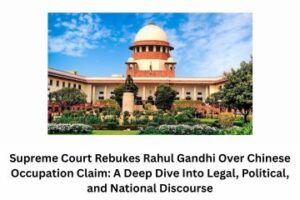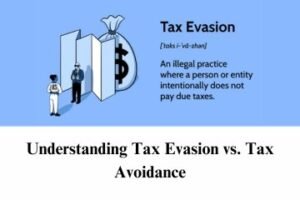Jurisdiction of Civil Court
Written by: Ms Kajal Kumari
Introduction:
Section 9 of the Civil Procedure Code, 1908 deals with the Courts to try all civil suits unless barred which declares that the Court shall have jurisdiction to try all suits of civil nature except the cognizance of which either expressly or impliedly bar.
Therefore, Section 9 of the Civil Procedure Code, 1908 creates a presumption in favour of jurisdiction which can be reverted by clear proof of the contrary. The courts always have jurisdiction to decide whether or not they have the jurisdiction to try the suit.
Section 9 of the Civil Procedure Code, 1908 uses the expression ‘suits of civil nature. There is a difference between a ‘civil suit’ and ‘suits of civil nature. The intent of the legislature behind using the expression ‘suits of civil nature’ was that the expression ‘civil suit’ will only include questions relating to civil rights whereas the expression ‘suits of civil nature’ will include not only civil rights but also questions relating to religious rites and ceremonies or questions of caste.
The effect of this is that a purely religious question can not be raised in a civil court, however, if the religious question is related to civil rights then it can be raised in a civil court.[1]
Under Section 9 of the Civil Procedure Code, 1908, purely political and religious questions are not allowed to be raised in a civil court. Therefore the principle question in the civil court should not be related to caste or religion. But, if the principle question incidentally involves or is connected with questions relating to religious rites and ceremonies, it does not cease to be a suit of civil nature and jurisdiction of the civil court is not barred.
Explanation 1 of Section 9 of the Civil Procedure Code, 1908, states that “a suit in which the right to property or to an office is contested is a suit of civil nature, notwithstanding that such right may depend entirely on the decision of questions as to religious rites or ceremonies”.
Explanation 2 of Section 9 of the Civil Procedure Code, 1908, declares that it is immaterial whether or not any fee is attached to such office as is referred to in Explanation 1 or whether or not such office is attached to a particular place. Explanation 2 was inserted by the 1976 Amendment because of the different interpretations given by the High Courts with respect to the matters relating to a fee. Religious offices may be divided into two categories:
- Those to which fees are appurtenant as a right.
- Those to which no fees are attached but which entitled the holder to receive some gratuities as may be paid to him.[2]
Express and Implied Bar:
The latter part of Section 9 of the Civil Procedure Code, 1908, is restrictive in the sense as it declares that the court does not have jurisdiction with respect to matters, the cognizance of which is either expressly or impliedly bar. An express bar arises when there is a distinct statute having an exclusive jurisdiction clause, which expressly bars the jurisdiction of an ordinary civil court.
For example: Consumer Protection Act, 2019, Income Tax Act, 1961, Rent Control Act, etc. Similarly, Civil Procedure Code, 1908, also provides an express bar to the institution of a civil suit under section 11, Order II Rule 2, Section 13 and Section 14.
Implied bar arises when there is no express exclusion of jurisdiction but it is implied that the jurisdiction of a civil court is ousted. For example, A property attached under section 82, 83 of the Criminal Procedure Code, 1973 can be released only by moving an application under section 85 of the Criminal Procedure Code, 1973, and not by way of a civil suit. It is an implied bar.
Similarly, with respect to Section 47 of the Civil Procedure Code, 1908. In Dhulabhai Vs. State of Madhya Pradesh 1969 SC, the issue before the Supreme Court was that if there is an express bar in favour of a special tribunal but the tribunal does not have the power to grant the relief claimed then whether the express bar would still be applicable? In this case, the Income Tax Act, 1961, provided that all disputes with respect to income tax had to be raised before the tax tribunal constituted under the IT Act.
The petitioner wanted a refund of excess tax but the IT Act did not have any provision for such refund and consequently, the tax tribunal did not have the power to order refund. The Supreme Court held that in such a case the jurisdiction of a civil court is not ousted. The Court also pointed out the circumstances in which jurisdiction of the civil court will not be barred notwithstanding that there is an express bar. Circumstances are:
- Cases in which provision of the particular Act have not been complied with or the Statutory Tribunal has not acted in conformity with the fundamental principles of the judicial process.
- Where the Statutory Tribunal can not provide sufficient remedy to the litigant.
- Where the provision of the particular act is challenged as being ultra vires.
- Where the provisions have already been declared unconstitutional.
Kinds of Jurisdiction:
- Pecuniary Jurisdiction
- Territorial Jurisdiction
Pecuniary Jurisdiction:
Pecuniary Jurisdiction is the pecuniary limit of a civil court specifying the value of the suit that would be maintainable in that court. The High Court in a State prescribes the pecuniary limit of every civil court and such civil court can entertain suits of up to such value.
A plaintiff instituting a suit would first have to value his suit as per the provisions of the Suit Valuation Act and thereafter the plaintiff would see that the valuation arrived at would fall under the pecuniary jurisdiction of which civil court. Section 6 of the Civil Procedure Code, 1908, clearly states that a civil court can not entertain a suit that falls beyond its pecuniary limits.
Section 15 of the Civil Procedure Code, 1908, declares that a civil suit should be instituted in the court of the lowest grade competent to try it. This implies that even if the higher court is having jurisdiction still the matter would go to the subordinate court as it falls within its pecuniary limits.[3]
Territorial Jurisdiction:
Section 16 of the Civil Procedure Code, 1908, deals with territorial jurisdiction with respect to a suit concerning the immovable property. A suit relating to an immovable property can only be instituted at the place where such immovable property is situated. Jurisdiction is always a creation of law and section 16 of the Civil Procedure Code, 1908, creates jurisdiction with respect to suits concerning immovable property.
Such jurisdiction can not be ousted by the parties by an agreement to the contrary. Such an agreement would be void under section 28 of the Indian Contract Act, 1872.[4] Section 16 of the Civil Procedure Code, 1908, will apply only when the suit is with respect to the following matters:
- Recovery of immovable property
- Partition Suit
- Mortgage Suit:- Redemption, foreclosure and sale
- Charge on immovable property
- Determination of any right or interest in immovable property
- Compensation for the wrong done to immovable property
- The movable property actually under distraint or attachment.
In all such suits, the territorial jurisdiction shall be at the place where the immovable property is situated.
In Harshad Chaman Lal Modi vs. DLF Universal Ltd. (2006) SC, the issue before the Court was whether Delhi Court would have jurisdiction with respect to a suit concerning immovable property located at Gurgaon. The Supreme Court held that this is a case of inherent lack of jurisdiction. Court further held that jurisdiction is a creation of law and therefore parties by an agreement can not confer jurisdiction on a court which does not have jurisdiction.
If the parties have by an agreement conferred jurisdiction on a court, which does not have jurisdiction then such a clause is void under section 28 of the Indian Contract Act, 1872. The Supreme Court finally held that it is the courts at Gurgaon which would be having jurisdiction in the matter.
The proviso appended to Section 16 of the Civil Procedure Code, 1908, creates an exception to the rule enacted by section 16 of the Civil Procedure Code, 1908. Section 16 of the Civil Procedure Code, 1908 declares that suits with respect to immovable property can only be instituted at the place where such immovable property is situated.
The proviso, however, creates an exception stating that if the relief sought can be entirely obtained through the personal obedience of the defendant then the suit can also be instituted at the place where the defendant resides, carries on business or personally works for gain.
Therefore, in suits relating to immovable property if the relief can be obtained through personal obedience of the defendant, then the plaintiff has a choice of jurisdiction. He can either institute the suit at the place where such immovable property is situated or at the place where the defendant resides, carries on business or personally works for gain. Personal Obedience is all those acts that a court can compel a defendant to do without leaving its jurisdiction.
The doctrine of Forum Convenience- Exclusive Jurisdiction Clause:
The doctrine of Forum Convenience implies that parties by an agreement can choose a convenient forum for themselves. Therefore, if with respect to a matter two courts are having concurrent jurisdiction then the parties by an agreement can vest exclusive jurisdiction in one court and oust the jurisdiction of another court. Such a clause is known as the Exclusive Jurisdiction Clause and such clause is not void under section 28 of the Indian Contract Act, 1872.
Objection as to Jurisdiction:
The defendant should raise objections as to jurisdiction at the very first opportunity i.e. at the time of filing the written statement. The court will not allow raising such objection at a belated stage unless it is a case of inherent lack of jurisdiction. Section 21 of the Civil Procedure Code, 1908, provides that if the objection of jurisdiction is not raised before the trial court then it can not be raised for the first time before the appellate or revisional court. Section 21 of the Civil Procedure Code, 1908 also creates an exception by providing that such objection may be allowed to be raised for the first time before the appellate or revisional court if it may lead to failure of justice.[5]
Conclusion:
Jurisdiction can be defined as the power and authority of a civil court to hear and determine a Cause of Action. Jurisdiction is always a creation of law. Parties can neither confer jurisdiction nor can oust the jurisdiction of a court. Parties by an agreement can not confer jurisdiction on a court which does not have any jurisdiction. Any such agreement conferring or ousting the jurisdiction of a civil court is void under section 28 of the Indian Contract Act, 1872.
Section 9 of the Civil Procedure Code, 1908 creates a presumption of jurisdiction in civil court. Section 21A of the Civil Procedure Code, 1908, lays down that no suit can be instituted for challenging the validity of a decree on the ground that the court was not having jurisdiction. The proper remedy in such a case would be to raise such objection by way of appeal.
References:
[1] Shraddha Ojha, ‘Jurisdiction of Civil Court under Civil Procedure Code, 1908’ (LSI) <http://www.legalservicesindia.com/article/508/Jurisdiction-Of-Civil-Court-Under-Civil-Procedure-Code.html> accessed 23 December 2020
[2] C.K. Takwani, Civil Procedure Code with Limitation Act, 1963 (Eighth Edition, Eastern Book Publication)
[3] Avtar Singh, The Code of Civil Procedure (Fifth Edition, Central Law Publication)
[4] Avtar Singh, Contract & Specific Relief (Twelfth Edition, Eastern Book Company)
[5] Akash M Nair, ‘Objections Taken in Civil Litigation’ ( iPleaders 13 May 2019) <https://blog.ipleaders.in/objections-taken-civil-litigation/> accessed 24 December 2020




